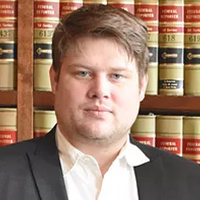 Gillette Criminal Lawyers, Wyoming
Gillette Criminal Lawyers, Wyoming
Not enough matches for Gillette Criminal lawyer.
Below are all Gillette lawyers.
Sponsored Lawyers
1-9 of 9 matches
Criminal, Accident & Injury, Workers' Compensation
Derek grew up in Gillette, Wyoming and graduated from Campbell County High School in 2009. He went on to attend the University of Wyoming and graduated with a B.S. in Political Science in 2013. While in college, Derek worked as a summer student at Eagle Butte and Bell Ayr mines driving haul trucks. Derek continued on to attend law school at the University of Wyoming College of Law and graduated in 2016. While in law school Derek was on the championship team in the 2014 Hirst Applegate Mock Trial Competition. His team went on to compete in the regional competition in Seattle, Washington. Derek also competed in the law school's client counseling competition. Derek was a recipient of the law school's "Excellence in Advocacy" award. Throughout law school, Derek worked as an intern at the Nick Carter Law Firm and worked for the firm in his first year of practice. Derek briefly left the firm and worked as a contract public defender and civil attorney, he gladly rejoined the Nick Carter Law Firm in June 2018.
(more)Criminal, Accident & Injury







